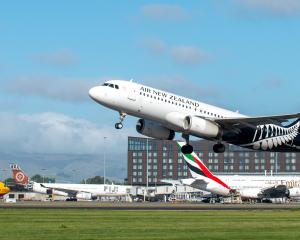
"As expected, the Australian budget delivered significant tax cuts."
While recognising the difficulties in doing any form of comparison, after Australia's 2007 budget, an individual needed to earn more than $194,506 before the personal income tax paid in Australia was greater than that paid in New Zealand.
As a consequence of Tuesday's announcement by Treasurer Wayne Swan, that amount now soared to $237,840 by July 1.
"It becomes a staggering $1.57 million with effect from July 1, 2013."
In contrast, the New Zealand Labour-led Government had not adjusted tax thresholds since 2000.
With the fiscal drag pushing more New Zealanders up through the tax brackets, they were caught with the double whammy of high taxes and bracket creep, he said in an interview.
Another key factor intensifying the debate was that real wages were higher in Australia than New Zealand.
The Government had to undertake some "serious adjustments" to match the Australian rates.
A single person earning income of $30,000 would have a 37% reduction in tax if they moved to Australia.
If they earned $100,000, they would currently save 10% in tax, which increased to 22% by 2013.
"Any number of assumptions can be factored into the calculations.
However, the conclusion is clear - as it has been in previous years, most of the population would be taxed less in Australia than in New Zealand in terms of their income and employment.
Tax rates were becoming a crucial part in the relationship between Australia and New Zealand, Mr Thompson said.
"Tax rates create the image of people able to earn more money in Australia. It's those sorts of headlines that attract people. It's those younger people that we want to retain - the brightest graduates who will earn the big incomes in the future."
Exacerbating the problem was that the perception that the Australian tax "burden" was even less than what it was, he said.
It would be critical that some form of tax relief was provided by Finance Minister Michael Cullen in next week's budget.
It would also be important the Government clearly outlined a view as to the destination of tax reform.
"The issue of real wages cannot be ignored. Nor can the material hidden barrier of marginal tax rates that provide a disincentive for taxpayers to get ahead."
The larger Australian economy and population offered a greater number of opportunities than existed in New Zealand, Mr Thompson said.
"The vision of where New Zealand should target will take even greater importance for those looking out into the medium and longer term. Like it or lump it, the Australian budget sets a line in the sand in terms of comparisons with our own," he said.
Britain's embattled Labour Government trimmed income taxes for 22 million people on Tuesday, as soaring food and fuel bills sent inflation rocketing and dented hopes for more interest rate cuts soon.
Higher household bills are creating a headache for increasingly unpopular Prime Minister Gordon Brown and the tax handout came after Labour came third in this month's local elections - its worst post-war performance on record.
"This family tax cut provides support this year for those on middle incomes at a time when they face increased bills," Finance Minister Alistair Darling told Parliament as he unveiled the surprise tax cuts.
Reuters reported that ordinary tax payers would get an extra 120 ($NZ309) this year and Mr Darling said it would be paid for by a 2.7 billion increase in government borrowing, putting further pressure on already tight public finances.
The move was meant to compensate about 5.3 million low-paid people who lost out when the Government scrapped a 10% income tax band, but obviously went markedly further than that in a dramatic political push to woo the voters Labour needed to win the next election, due by May 2010.
It was also designed to avoid a humiliating defeat in a parliamentary vote on the budget as Labour rebels made common cause with legislators from other parties on the compensation issue.
This would have compounded Mr Brown's problems ahead of a key parliamentary by-election next week which polls suggest could result in a gain for the resurgent opposition Conservatives.
The 10% tax row, together with concerns over rising food and energy bills and falling house prices, was blamed for the Labour local election rout.
Another headache for the Government came as data showed a record rise in food prices and soaring energy bills helped lift inflation 0.5% to 3% in April, the biggest jump since 2002.
That inflation shock left the rate way above the central bank's 2% target and all but scotched analyst forecasts for a rate cut in June - pushing sterling up and stocks down.










